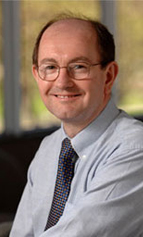 Dr. John O'Keefe
Dr. John O'Keefe
A few years ago, I was speaking with a senior employee of a national health care association. He told me that during all the years he worked with the Canadian Medical Association, he didn't know anybody in our sector. He wondered why organized dentistry appeared content to be excluded from the major health care debates in Canada, describing our profession as being like an offshore island cut off from the health care mainland.
I found this a very compelling metaphor, especially because it was conveyed at a time when dentistry was placing great emphasis on messages about the connection between oral health and general health. For me, there is no dichotomy between oral health and so-called general health; health is health, no matter what part of the body is in question.
The separation of the medical and dental professions has many historic roots. However, the essential difference in how medical care and dental care are funded in Canada remains the dominant factor solidifying the boundaries between the professional solitudes.
There's no denying that "island life" has been good to dentistry for much of our profession's recent history. We have maintained professional autonomy, the economic return on a dental education is promising, dentistry has earned high prestige and public trust, and there are still many applicants for every available space in our dental schools. However, cracks are appearing in our cozy world that could have a significant impact on oral health care in future years.
My concerns revolve around the coordinated health care of patients who require interventions from dentists and other health care practitioners. I believe that professional turf wars and a mutual indifference between the health care professions could have a deleterious effect on the care of increasingly complex patients.
The communication gulf that remains between the professions continues to rise to the surface. An emergency room physician recently asked me, "why are you dentists so ready to prescribe Percocet after surgical procedures rather than Tylenol 3 or ibuprofen?" This physician had experienced this situation first-hand with a family member and had heard other anecdotal reports. Similarly, some dentists have expressed confusion about the differing attitudes between the professions on guidelines related to antibiotic prophylaxis while others have been frustrated by the difficulty in getting timely medical advice from physicians about certain aspects of treating medically complex patients.
If dentistry allows its perceived "offshore island" status to persist, patients will be the ones to bear the ultimate harm. We must always remember that the professions exist to serve the public and not the other way around.
The way forward will likely depend more on dentistry rather than the medical profession. For instance, dentistry must raise its profile within public health departments, hospitals and health sciences clusters at universities, to demonstrate how we can be of service to other departments within these facilities.
As a 2-time immigrant from a small island to a larger country, I know that it's us islanders who have to be prepared to make the biggest efforts to build bridges to the mainland. Our professional associations can help create a climate of collaboration by approaching the medical equivalent organizations to seek common ground around caring for medically complex patients.
